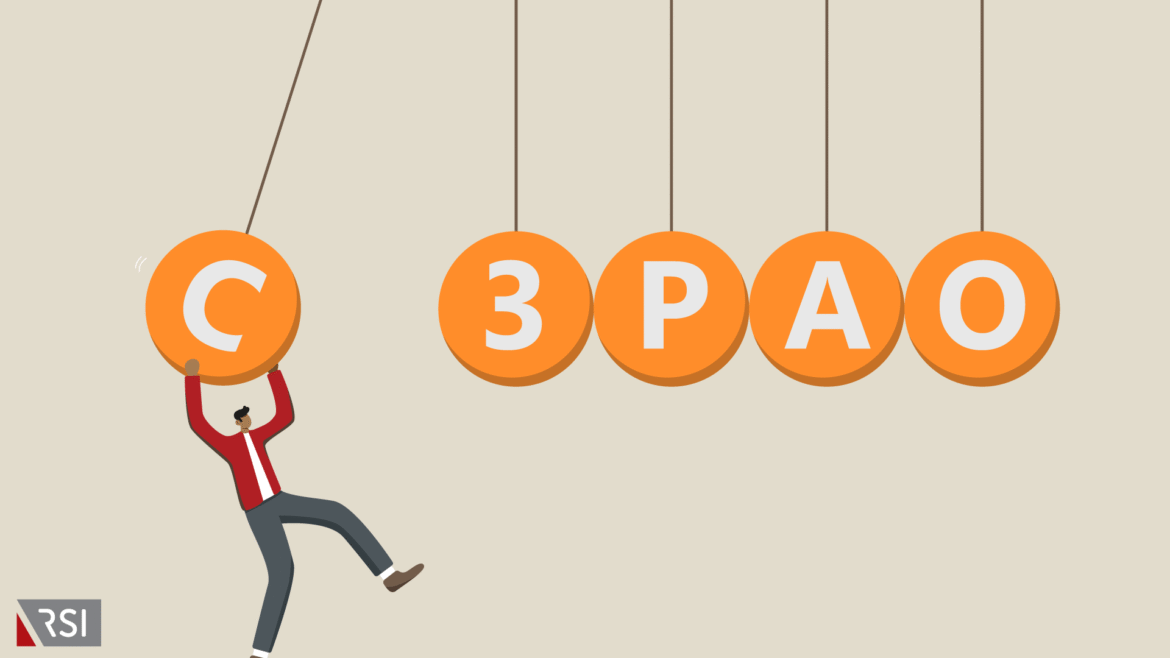Cybersecurity within the Defense Industrial Base (DIB) is a matter of national security. That’s why the Department of Defense (DoD) requires contractors to meet strict standards under the Cybersecurity Maturity Model Certification (CMMC). For many organizations, achieving CMMC Level 2 or higher may involve working with a specialized third party: a Certified Third-Party Assessor Organization (C3PAO). But what exactly does a C3PAO do?
Let’s break down the critical responsibilities of C3PAOs, and why choosing the right one makes all the difference in your compliance journey.
What is a C3PAO?
A Certified Third-Party Assessor Organization (C3PAO) is an entity officially authorized by the Cyber AB (formerly the CMMC Accreditation Body) to conduct CMMC assessments. These assessments are required for some organizations seeking Level 2 certification—specifically, those that handle Controlled Unclassified Information (CUI) tied to national security. Organizations handling less sensitive CUI at Level 2 may qualify for self-assessment, as defined by DoD guidance.
C3PAOs undergo rigorous vetting by the Cyber‑AB—including financial, foreign‑ownership, and capability reviews—to ensure technical expertise, impartiality, and quality assurance before being authorized to perform official assessments.
Key Responsibilities of a C3PAO
To understand the value a C3PAO brings to the CMMC ecosystem, it’s important to break down the core responsibilities they fulfill throughout the assessment and certification process.
1. Conduct Official CMMC Assessments
A C3PAO’s primary role is to conduct formal third‑party CMMC Level 2 assessments (covering all 110 NIST SP 800‑171 controls). These assessments are required once every three years, with annual affirmation, for organizations handling DoD‑related CUI.
C3PAO assessments include:
- Documentation Review – Analyzing security policies, procedures, and implementation evidence.
- Personnel Interviews – Verifying staff understand and follow cybersecurity practices.
- Technical Validation – Testing controls to confirm they’re functioning as intended.
2. Validate NIST 800-171 Compliance
Since CMMC Level 2 aligns directly with NIST SP 800-171, C3PAOs validate compliance across 14 control families, ranging from access control to incident response. This ensures that an organization is safeguarding sensitive data according to DoD expectations.
3. Provide Formal Findings and POA&M Eligibility
After an assessment, C3PAOs provide a formal findings report that outlines:
- Areas of full compliance
- Deficiencies that must be addressed
- Items eligible for Plans of Action & Milestones (POA&Ms)
Note on Independence: C3PAOs must remain impartial and are prohibited from providing remediation assistance to the same client they assess. Organizations must close any gaps independently or with the help of a registered consulting provider.
4. Submit Assessment Results to the DoD
Once the assessment is complete, C3PAOs are responsible for submitting results to the DoD’s Enterprise Mission Assurance Support Service (eMASS) or another designated portal. Once approved, the organization receives a 3‑year certification.
5. Maintain Accreditation and Impartiality
C3PAOs are held to ongoing quality and compliance obligations, including:
- Annual affirmations of capability and independence
- Continuous education and assessor training
- Quality assurance reviews from the Cyber AB
Their ability to conduct assessments is dependent on maintaining these high standards.
Why Choosing the Right C3PAO Matters
Not all C3PAOs offer the same experience or level of support. The right partner will not only conduct the formal assessment but will also ensure your process is as efficient and transparent as possible. Look for C3PAOs with:
- Proven experience in the defense contracting space
- Deep knowledge of NIST frameworks
- Structured pre-assessment and readiness review offerings
- Strong communication and support infrastructure
Some C3PAOs—like RSI Security—also operate as Registered Provider Organizations (RPOs), which can guide you through remediation prior to the formal assessment.
C3PAO vs. RPO: What’s the Difference?
A common source of confusion is the difference between a C3PAO and a Registered Provider Organization (RPO):
- RPOs help organizations implement controls and prepare for CMMC certification. They can conduct gap assessments and provide remediation support but cannot certify organizations.
- C3PAOs conduct the official third-party assessment required for Level 2 CMMC certification. They must remain impartial and cannot assist with remediation for the same client they assess.
Organizations often work with an RPO for preparation, then contract with a C3PAO for certification—or choose a dual-role provider that offers both services through separate engagements.
Prepare for a Successful C3PAO Assessment
If your organization handles sensitive Controlled Unclassified Information (CUI) and requires a third-party audit under CMMC, a Certified Third-Party Assessor Organization (C3PAO) assessment is essential to maintain DoD contract eligibility. Success starts with a proactive readiness review or gap assessment to identify and address weaknesses. From there, you’ll need to fully implement and document all 110 controls outlined in NIST SP 800-171. Once prepared, engaging a qualified C3PAO for formal certification ensures your compliance is verified and defensible.
Getting CMMC certified is more than a checkbox—it’s a strategic step to ensure cybersecurity resilience and win future DoD contracts.
RSI Security is an accredited C3PAO and RPO. Contact us today to schedule your official CMMC assessment and take the next step in your compliance journey.
Contact Us Now!
